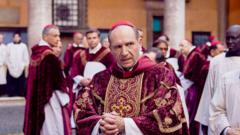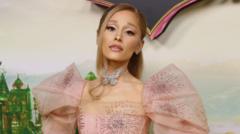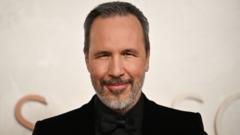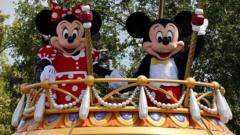The film "Conclave," an Oscar-winning box office success, casts a revealing light on the clandestine world of papal elections, particularly as 134 cardinals gear up to select a successor for Pope Francis on May 7. Set against the iconic backdrop of the Sistine Chapel, the conclave represents both a sacred tradition and a fiercely competitive political arena, a dichotomy expertly captured in the film.
Within its gripping narrative, "Conclave" emphasizes the rigorous isolation imposed on the cardinal-electors during this significant event, allowing for no outside communication. Stephen Bullivant, a professor of theology, points out that while the cardinals are cut off to prevent external influence, practicalities mean they cannot be entirely shielded from the world. This self-isolation is rooted in centuries of tradition but stands in contrast to modern calls for transparency in decision-making processes.
Much of the film's drama arises from the intricate political maneuvering that occurs as cardinals vie for votes. "Conclave" illustrates the tension between divine guidance and personal ambition as experienced by the participants. According to Nick Emerson, the film's editor, the narrative highlights the strategic gameplay behind the scenes, emphasizing that even before the conclave officially begins, intense politicking is likely ongoing.
A notable plot twist in the film involves an underdog candidate rising unexpectedly in the race. However, in reality, while any baptized male Catholic can theoretically be elected pope, all voting cardinals in the conclave must have been officially appointed by a previous pope. Nevertheless, this papal election is set to be one of the most unpredictable ever, with a substantial portion of the voting cardinals appointed by Pope Francis himself, representing a diverse mix of political backgrounds and geographical origins.
Edward Berger, the film's director, seeks to humanize the cardinals by portraying them as relatable figures with modern problems and aspirations, contradicting the perception of them as distant spiritual leaders. Prof. Rowlands asserts that "Conclave" uniquely navigates the emotional and moral complexities inherent in the election process, revealing themes of ambition, fear, and personal struggle within the framework of a divinely purposed conclave.
Overall, "Conclave" not only entertains but also invites audiences to consider the profound responsibilities and human elements that shape one of the most significant events in the Catholic Church.
Within its gripping narrative, "Conclave" emphasizes the rigorous isolation imposed on the cardinal-electors during this significant event, allowing for no outside communication. Stephen Bullivant, a professor of theology, points out that while the cardinals are cut off to prevent external influence, practicalities mean they cannot be entirely shielded from the world. This self-isolation is rooted in centuries of tradition but stands in contrast to modern calls for transparency in decision-making processes.
Much of the film's drama arises from the intricate political maneuvering that occurs as cardinals vie for votes. "Conclave" illustrates the tension between divine guidance and personal ambition as experienced by the participants. According to Nick Emerson, the film's editor, the narrative highlights the strategic gameplay behind the scenes, emphasizing that even before the conclave officially begins, intense politicking is likely ongoing.
A notable plot twist in the film involves an underdog candidate rising unexpectedly in the race. However, in reality, while any baptized male Catholic can theoretically be elected pope, all voting cardinals in the conclave must have been officially appointed by a previous pope. Nevertheless, this papal election is set to be one of the most unpredictable ever, with a substantial portion of the voting cardinals appointed by Pope Francis himself, representing a diverse mix of political backgrounds and geographical origins.
Edward Berger, the film's director, seeks to humanize the cardinals by portraying them as relatable figures with modern problems and aspirations, contradicting the perception of them as distant spiritual leaders. Prof. Rowlands asserts that "Conclave" uniquely navigates the emotional and moral complexities inherent in the election process, revealing themes of ambition, fear, and personal struggle within the framework of a divinely purposed conclave.
Overall, "Conclave" not only entertains but also invites audiences to consider the profound responsibilities and human elements that shape one of the most significant events in the Catholic Church.




















